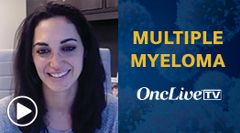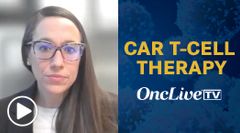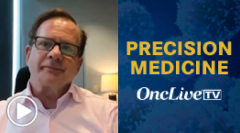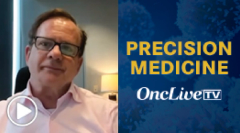
Inside the Clinic: JTCC Experts Discuss Approaches to CAR T-Cell Therapy
Lori A. Leslie, MD, and Andre H. Goy, MD, discuss approaches to CAR T-cell therapy.
Episodes in this series

Lori A. Leslie, MD, assistant professor, Hackensack Meridian School of Medicine, director, Indolent Lymphoma and Chronic Lymphocytic Leukemia Research Programs, John Theurer Cancer Center, and Andre H. Goy, MD, physician in chief of the Hackensack Meridian Health Oncology Care Transformation Services, chairman and chief physician officer at John Theurer Cancer Center at Hackensack University Medical Center, and Lymphoma Division Chief at the John Theurer Cancer Center, discuss approaches to CAR T-cell therapy.
Indications for CAR T-cell therapy are expanding, which has been exciting to see, Leslie says. Moreover, real-world data sets are showing encouraging efficacy with these therapies. In diffuse large B-cell lymphoma (DLBCL), axicabtagene ciloleucel (axi-cel; Yescarta), tisagenlecleucel (Kymriah), and lisocabtagene maraleucel (Breyanzi) are approved for patients who have received at least 2 lines of therapy. For eligible patients with DLBCL in need of third-line treatment, CAR T-cell therapy is a preferred option, Leslie says. Notably, axi-cel is expected to become a second-line standard for patients with relapsed/refractory large B-cell lymphoma based on the results from the phase 3 ZUMA-7 trial (NCT03391466), which showed improved event-free survival with the therapy vs standard-of-care chemotherapy, Goy says.
In mantle cell lymphoma (MCL), the current setting for the use of CAR T-cell therapy is evolving, Leslie explains. Currently, brexucabtagene autoleucel (Tecartus) is approved for any patient with relapsed/refractory MCL. However, the NCCN guidelines recommend that patients be previously exposed to chemotherapy and a BTK inhibitor.
In follicular lymphoma, axi-cel is approved for patients who have received at least 2 lines of therapy. However, because of the variation in disease biology, not all patients with follicular lymphoma will need CAR T-cell therapy in the third-line setting, Leslie says. For example, patients with indolent disease may be better served with alternative therapies, such as PI3K inhibitors or EZH2 inhibitors, Leslie adds. It will be important to sort out the optimal sequence of treatment given the implications on patient care and treatment costs, Goy concludes.








































